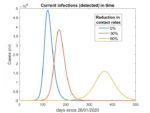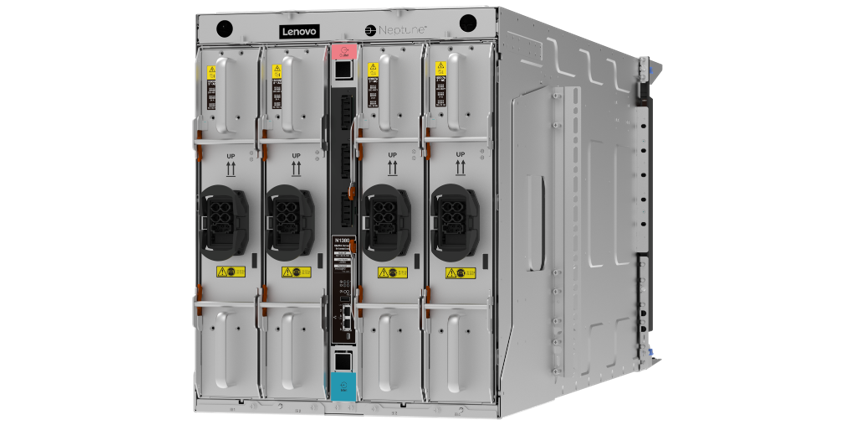A good mid-December morn to you! We offer this rapid (7:49) run through recent news from the world of HPC-AI, including: Google “Willow” quantum chip: hype or reality?, LRZ chooses HPE ….
HPC News Bytes 20241216: Google Quantum – Hype or Reality?, HPE’s ‘Blue Lion’ Win in Europe, US-China Tech Retaliations, HPC and Crop Yields
HPE to Build €250M Liquid Cooled HPC at Leibniz Supercomputing Center
The Leibniz Supercomputing Center (LRZ) in Germany has commissioned Hewlett Packard Enterprise (NYSE: HPE) to build an Nvidia-powered €250 million high-performance computer, “Blue Lion.” The system will utilize the HPE Slingshot ….
IQM Selected for 2 Quantum Computers for Euro-Q-Exa Hybrid System at LRZ
Munich, 16th October 2024 – The EuroHPC Joint Undertaking (EuroHPC JU) has signed a purchase agreement with IQM Quantum Computers (IQM), a maker of superconducting quantum computers. Under the agreement, IQM will deliver two Radiance quantum systems of 54 qubits and 150 qubits in the second half of 2025 and by the end of 2026, respectively. […]
EuroHPC JU Picks 6 QuroQCS Sites for Qauntum Computers
The European High Performance Computing Joint Undertaking (EuroHPC JU) has selected six sites across the European Union (EU) to host the first EuroHPC quantum computers: IT4I (Czechia), LRZ (Germany), BSC-CNS (Spain), GENCI-CEA (France), CINECA (Italy), and PSNC (Poland). EuroHPC JU said Italy, France, Spain and Poland stood out among the countries expressing interest: For Italy, […]
Lenovo Brings a Decade of Liquid Cooling Experience to the Faster, Denser, Hotter HPC Systems of the Future
[SPONSORED CONTENT] HPC systems customers (and vendors) are in permanent pursuit of more compute power with equal or greater node density. But with that comes more power consumption, greater heat generation and rising cooling costs. Because of this, the IT business – with a boost from the HPC and hyperscale segments – is spiraling up […]
LRZ Expanding Flagship HPC System to Integrate AI
Garching/Munich – May 4, 2021 – The Leibniz Supercomputing Centre (LRZ) will expand its flagship HPC system SuperMUC-NG, which is part of the Gauss Centre for Supercomputing (GCS). In addition to performance in simulation and modelling, phase 2 of SuperMUC-NG will integrate artificial intelligence (AI) methods of computation. The system will be equipped with Intel […]
Kick-off for the Leibniz Supercomputing Centre’s Quantum Integration Centre
Munich, March 22, 2021-The Leibniz Supercomputing Centre (LRZ) of the Bavarian Academy of Sciences and Humanities has opened its Quantum Integration Centre, or QIC for short. Bavaria’s leading scientific computing centre is taking quantum computing out of the physics labs and bringing it to scientific applications. Present at the QIC launch: Bavarian Minister President Markus […]
Leibniz Supercomputing Centre Takes Delivery of Atos Quantum Learning Machine
Paris and Munich — March 18, 2021 — Atos today said it has delivered an Atos Quantum Learning Machine (Atos QLM), a commercial quantum simulator, to the Leibniz Supercomputing Centre (LRZ), of the Bavarian Academy of Sciences and Humanities in Germany. The Atos QLM is installed in the recently opened LRZ Quantum Integration Centre (QIC), […]
Arm Throwing Elbows: LRZ to Deploy Arm-based HPE Cray CS500
It’s been a good week for Arm: the Fugaku supercomputer at Japan’s Riken research center was named no. 1 on the TOP500 listing of the world’s most powerful HPC systems, and today, the Leibniz Supercomputing Centre (LRZ) in Munich announced it will deploy HPE’s Cray CS500 with Fujitsu A64FX chips based on the Arm architecture – the same processor used in Fugaku (and then there’s Apple switching from x86 for new Arm chips).
GCS Centres in Germany support COVID-19 research with HPC
Epidemiologists have turned to the power of supercomputers to model and predict how the disease spreads at local and regional levels in hopes of forecasting potential new hot spots and guiding policy makers’ decisions in containing the disease’s spread. GCS is supporting several projects focused on these goals. “”Our workflows are perfectly scalable in the sense that the number of calculations we can perform is directly proportional to the number of cores available.”










